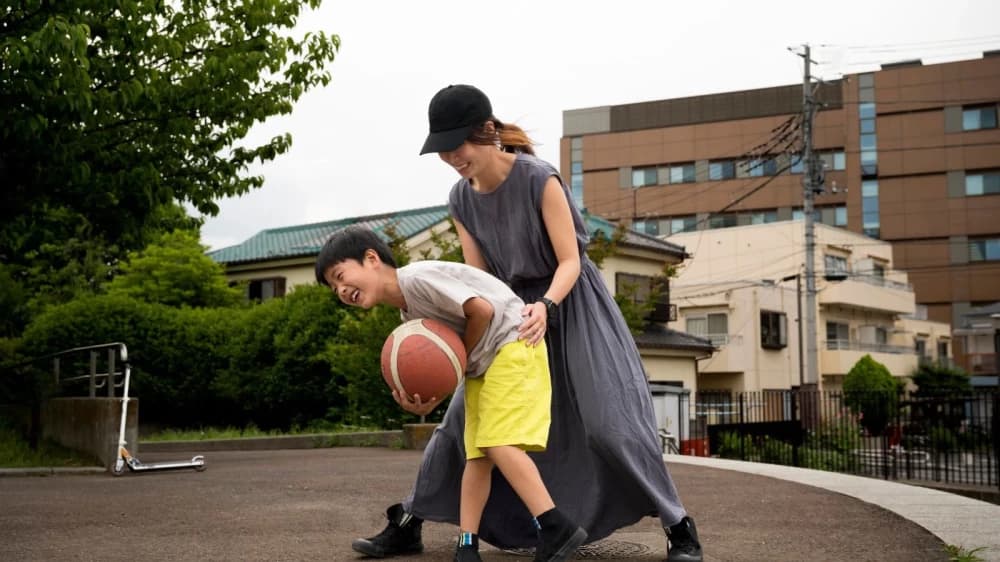Understanding one's emotions, actions, and strengths enables the students to perform better, build stronger team dynamics, and enjoy a more fulfilling sports
Participating in school sports activities is not just about physical fitness or winning the games; it is also a good time for personal development. Probably, one of the most valuable skills that students can gain in this context is self-awareness. Understanding one's emotions, actions, and strengths enables the students to perform better, build stronger team dynamics, and enjoy a more fulfilling sports experience. For example, a basketball player aware of the fact that he always gets frustrated after missing a shot can use self-awareness to stop, breathe, and refocus before letting frustration affect the rest of the game. This article will discuss how being self-aware helps school sports students and how to develop this important skill.
What Is Self-Awareness in School Sports?
Self-awareness is the ability to recognize and understand your emotions, thoughts, and behaviors. It also involves understanding how these aspects impact the people around you. In a school sports setting, this means being mindful of your performance, reactions, and interactions with teammates and coaches. It involves:
Emotional Awareness: Understanding how emotions like excitement, frustration, or nervousness affect your performance.
Behavioral Awareness: Recognizing how your actions impact your team’s morale and performance.
Strengths and Weaknesses: The identification of areas where you are good at and areas that need improvement.
Self-awareness helps students to tackle problems with a positive attitude and to respond to various situations in the most effective way.
Advantages of Self-Awareness in School Sports Activities
1. Enhanced Performance
With self-awareness, students can be aware of the strengths and weaknesses on the field or court. For example, a player who is not doing well in defense can work on his strength in defense during practice. Such awareness of areas to work on allows students to set achievable goals and work towards improvement in targeted areas.
2. Improved Emotional Control
Sports can provoke feelings of either after winning or after making a mistake. Self-conscious students can handle their emotions and be calm even in the most crucial times. For instance, when a basketball game is quite intense, a player feeling anxious at the free throw line can recognize his nervousness, take a deep breath, and focus on his technique to be calm and do it effectively. For instance, in case a soccer player fails to hit the goal and breathes, then composes himself and goes on playing without frustrations about derailing his or her play.
3. Strong Cooperation
The reality with team sports is that since persons understand each other and can even be very social, thereby improving teamwork through being better advised by your attitude and conduct whether positive or negative for the moods of fellow players, the action of motivating instead of accusing a player into error has boosted team morale and its unification.
4. Confidence
Student's self-confidence increases due to knowledge about what a student can perform. A basketball player, if aware that he can shoot the ball really well, can then act on it and be brave about making that shot during the game. Self-reliance will allow the player to make even better decisions while playing the game.
5. Development of Leadership Skills
Leaders in sport teams are often very self-conscious. If they understand their impact to others and have emotional equilibrium, then they can motivate and inspire their teammates. For example, a team captain who knows how to stay positive in difficult matches can help his or her team stay focused and determined.
How to Develop Self-Awareness in School Sports
1. Reflect on Performance
After games or practices, time yourself to reflect on what's well done and what can be done. Ask yourself questions like:
What were your strengths today?
What challenges were faced, and how did one overcome them?
How can I contribute to my team's success?
Reflection by indicating patterns and areas for change are facilitated. For instance, after a soccer game has played and missed a goal, for example, he might end and ask himself questions like did I communicate well with fellow players? How did you manage your frustration after missing one goal? Such a question reveals more about the performance or attitude.
2. Getting Feedback
Coaches and teammates can also give you insights into your performance and behavior. Be open to constructive feedback, and use it as an opportunity to grow. For example, if a coach indicates that you need to improve on communication on the field, then take steps to work on this skill.
3. Practice Mindfulness
Mindfulness techniques, such as deep breathing or visualization, help students stay in the game. Taking a moment to calm your mind before a big match can reduce anxiety and improve concentration.
4. Set Personal Goals
This will make it easier for students to remain motivated as well as track their progress. For example, a volleyball player may set an objective of increasing his serving accuracy within the next month. Measuring progress makes them celebrate achievements and stay motivated.
5. Identify Emotional Triggers
Knowing what triggers strong emotions would make it easier for students to be more responsive. If losing one point is frustrating, learning when to pause and refocus to avoid the impact of their feelings can help them gain much from this activity.
Repression of Self-Awareness
Fear of being Criticized
Many students avoid feedback because they fear judgment. However, constructive feedback is a powerful tool for growth. Embrace it as a chance to improve rather than viewing it as a personal attack.
Comparing Yourself to Others
In competitive sports, it's easy to compare yourself to others. Instead, focus on your own progress and celebrate small improvements.
Handling Setbacks
Mistakes and losses are a part of sports. Self-aware students think of disappointments as learning and not as failure. They might go on stronger and bolder to recover from anything that seemed to go wrong in their earlier attempt.
Conclusion
Being self-aware in the school sport activities gives strength to students to face challenges in performance enhancement and stronger bonding within the teams. Understanding oneself and feelings, actions, and strengths might turn sports to a stepping stone for their growth in success. With reflection, feedback, and mindfulness, young athletes are able to develop a skill that may benefit not only in sports but even in broader life areas. A key of unlocking your best performance can be embracing self-awareness in your sporting activities, while growing as an athlete as well as a person. Start changing your game and perspective on what constitutes teamwork and success with taking that first step today.



